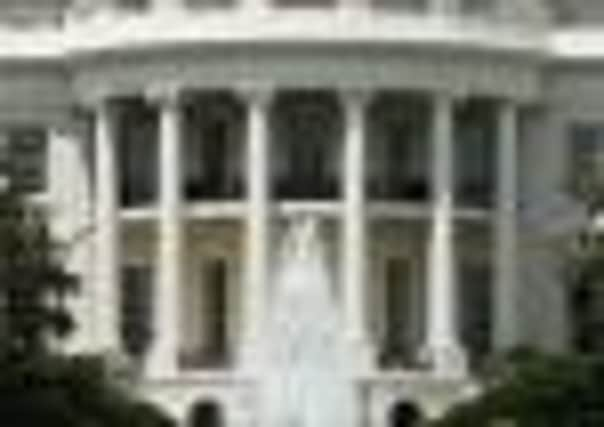Andrew Wilson: The US is a taste of what life can be if we don’t limit ourselves


He graces the wall of the lobby and is part B of a remarkable three-part Norman Rockwell painting from 1943 when one Franklin Delano Roosevelt was the 32nd President.
It depicts the line of people waiting expectantly to see the most powerful person in the world and among the characters is a rather dandily dressed Scottish soldier sat cross legged in a kilt, Tam O’Shanter and splendid green socks. I would love to know who he was and why he was there.
Advertisement
Hide AdAdvertisement
Hide AdThe romance of the possibilities of who and why could set your imagination running fast. It is the deep pull I always feel when I visit the United States and pause to contemplate the immensity of its story. This feeling is most acute at Ellis Island’s immigration museum when you consider the sheer teeming vastness of the human tide of hope that poured through there into that nation as it built itself.
And being from this small corner of the world, I also feel it whenever I meet evidence of the significant and continuing part the Scots have played, for good and ill, in the Dance Called America. The masons who built part of Edinburgh’s Queen Street nipped over to help out on the White House before nipping home again. Impressive isn’t it? Most Scots who went there stayed, though.
There is something about the act of emigration that is hugely impressive as an entrepreneurial adventure. And in the faces of the near six million Americans claiming Scottish antecedence you see the same features they left on the faces at home and, sometimes, even the same sound.
As a child politician I was privileged to travel the US as a guest of their government in 2000 and found myself one day in the suburbs of Chicago with the St Andrews Society of Illinois. Their fundraising paid for a retirement home and there I met a lady of 103 years of age who invited me into her bedroom. I was young, free and single so in I gaily stepped. She had left Glasgow’s Byers Road to emigrate at the age of 17 and here she was in front of me nearly 4,000 miles from home. She wanted to talk about Glasgow and the voice that spoke could have been my late Granny’s. Her life she made for herself in Middle America but her voice never strayed from the Glasgow she was born into.
And this is a story you find repeated all across that great nation. I was there last week on business and delighted to hear reports of the most extensive and successful American tour our First Minister has undertaken to date. One of my enduring frustrations is that, for whatever reason, we have yet to capitalise economically, culturally and politically on our links and our diaspora in the way other countries have and do. We have to remedy that and visits like that one help enormously.
But if I could bottle anything to send home from the upside of the stories of the Scots in America it is what President Obama coined the “audacity of hope”. The sense of purpose, belief and possibility in what our lives can be if we don’t limit ourselves.
One man I met last week was born in Leven but has built his career in America and now runs one of the most exciting technology marketing agencies developing “big data” ideas for clients that will transform the way we live our lives. He lives in Seattle now. Nice.
Four other men started from small towns in Fife and went on to shape America’s story. The life story of Dunfermline-born industrialist turned philanthropist and educationalist Andrew Carnegie speaks for itself although we don’t tell it to ourselves enough.
Advertisement
Hide AdAdvertisement
Hide AdCupar-born minister James Wilson was joined by St Andrews-educated John Witherspoon in signing the US Declaration of Independence in 1776. The latter also found time to found Princeton University.
In the year they declared America’s independence (crazy idea, it will never work), Adam Smith from Kirkcaldy finished his epic Wealth Of Nations underpinning the Enlightenment analysis of the economic blueprint America modelled upon, well almost.
The point I want to make in it all is that five men, modern and historic, shaped and are shaping the world we live in on the stage of a nation built by the sweat and tears of immigration. They started their own momentous journeys in small town Scotland.
We are a small country of just over five million. A further five million and more empathise with us in America and millions of others like them around the world. There is the power for good and hope and inspiration in all of that if we just open our eyes and our minds to the possibilities. They are endless.
As the 42nd president once said: “Big things are expected of us and nothing big ever came from being small.”
All things are possible is what I’m always thinking as I board the plane home from America.
Twitter: @AndrewWilsonAJW